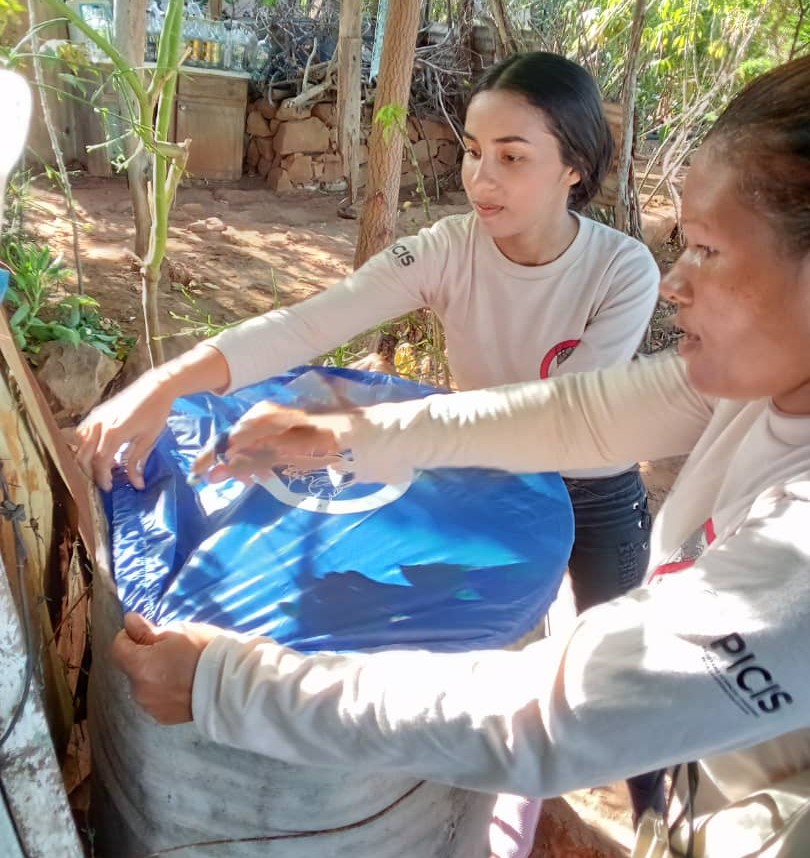Poor sanitary conditions caused by the ongoing economic and political crisis in Venezuela have exacerbated the rapid spread of dengue fever in urban settings. This puts many people at risk from this dangerous arboviral disease, which infects an estimated 100-400 million people every year (source: WHO).
The Aedes mosquito that transmits dengue breeds easily in small water containers that can be found in households, such as old tyres, bottle taps and water filled buckets. Prevention and control activities are key to protecting communities from dengue, which has no specific treatment and in severe cases can be fatal.
MENTOR’s dengue control programme has been working with the most vulnerable communities in seven districts across Venezuela to reduce the risk of infection. Community Health Workers carry out house-to-house visits promoting important messages on vector control and hygiene. MENTOR has also distributed water tanks and lids for water containers, for safe water storage and to reduce mosquito breeding sites.
Zaida lives in one of these communities, where she lives with her husband who is bed ridden. Water is supplied once a week in her neighbourhood. Now that she has received a water container from the programme, she is able to safely store the water to use for cleaning and drinking over the week.
Zaida also received information on how to ensure safe drinking water and to maintain a clean household. She said: “No one ever comes here; we never received any help. Thanks to MENTOR we learned a lot about dengue and how to avoid having so many mosquitoes in the house. With my new water tank, I have sufficient water to last for the week.”
So far, MENTOR has reached over 860,000 people in around 730,000 house-to-house visits. We have also improved water storage for over 10,000 people through new water tanks and lids for water containers.
* https://www.who.int/news-room/fact-sheets/detail/dengue-and-severe-dengue

